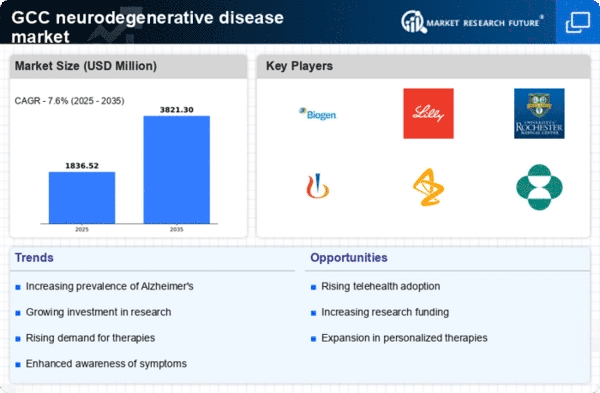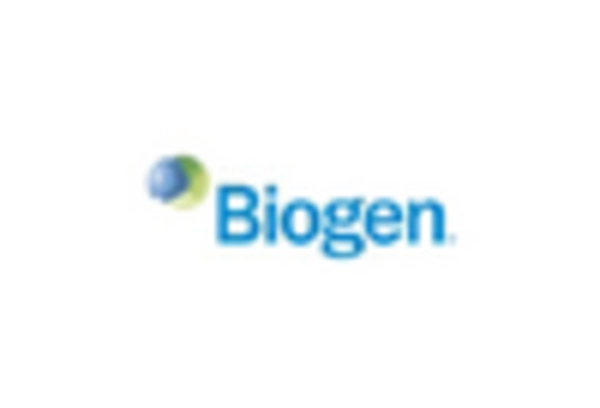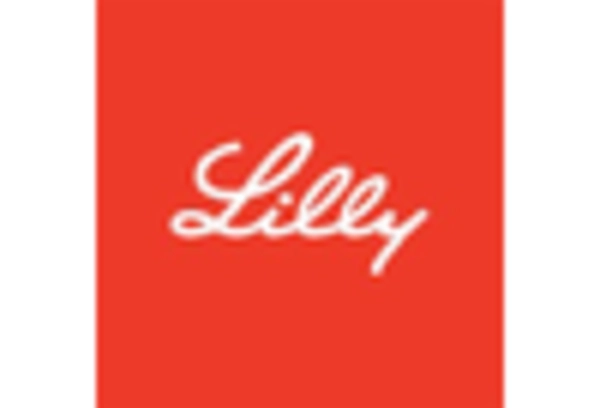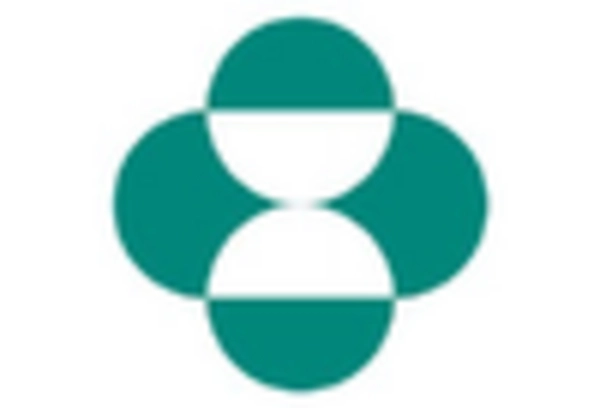Aging Population in GCC
The aging population in the GCC region is a critical driver for the neurodegenerative disease market. As life expectancy increases, the prevalence of neurodegenerative disorders such as Alzheimer's and Parkinson's disease is expected to rise. Current estimates suggest that by 2030, the number of individuals aged 65 and older in the GCC will increase significantly, leading to a higher demand for healthcare services and treatments. This demographic shift necessitates enhanced healthcare infrastructure and specialized care, thereby creating opportunities for pharmaceutical companies and healthcare providers. The neurodegenerative disease market is likely to expand as a result of this demographic trend, with increased investments in research and development aimed at addressing the unique challenges posed by an aging population.
Government Funding and Support
Government funding and support for healthcare initiatives play a pivotal role in shaping the neurodegenerative disease market. In the GCC, various governments are prioritizing healthcare spending, with a focus on research and treatment for neurodegenerative diseases. For instance, recent budgets indicate an increase in allocations for neurological research, which could reach up to $500 million annually by 2027. This financial backing is essential for fostering innovation in drug development and improving patient care. Furthermore, public health campaigns aimed at raising awareness about neurodegenerative disorders are likely to enhance early diagnosis and treatment, thereby driving market growth. The neurodegenerative disease market stands to benefit from these governmental efforts, which may lead to improved healthcare outcomes.
Rising Awareness and Education
Rising awareness and education regarding neurodegenerative diseases are crucial drivers for the market. In the GCC, increased public and professional awareness about the symptoms and impacts of these disorders is leading to more individuals seeking medical advice and treatment. Educational initiatives by healthcare organizations and non-profits are fostering a better understanding of neurodegenerative conditions, which may result in earlier diagnosis and intervention. This heightened awareness is likely to stimulate demand for therapeutic options and support services, thereby expanding the neurodegenerative disease market. Furthermore, as healthcare professionals become more knowledgeable about these disorders, the quality of care provided to patients is expected to improve, further driving market growth.
Technological Advancements in Diagnostics
Technological advancements in diagnostics are transforming the neurodegenerative disease market. Innovations such as advanced imaging techniques and biomarker discovery are enabling earlier and more accurate diagnosis of neurodegenerative disorders. For example, the introduction of PET scans and MRI technology has improved the ability to detect conditions like Alzheimer's disease at earlier stages. This shift towards precision medicine is likely to enhance treatment outcomes and patient management. Moreover, the integration of artificial intelligence in diagnostic processes may streamline workflows and reduce costs, making healthcare more accessible. As these technologies become more prevalent in the GCC, the neurodegenerative disease market is expected to experience growth driven by improved diagnostic capabilities.
Collaboration Between Public and Private Sectors
Collaboration between public and private sectors is emerging as a significant driver in the neurodegenerative disease market. Partnerships between government entities, research institutions, and private companies are fostering innovation and accelerating the development of new therapies. In the GCC, initiatives that promote joint research projects and funding opportunities are likely to enhance the capabilities of local pharmaceutical companies. Such collaborations can lead to the sharing of resources, expertise, and data, which may expedite the drug development process. As a result, the neurodegenerative disease market could witness an influx of novel treatments and solutions, ultimately benefiting patients and healthcare systems alike.
















